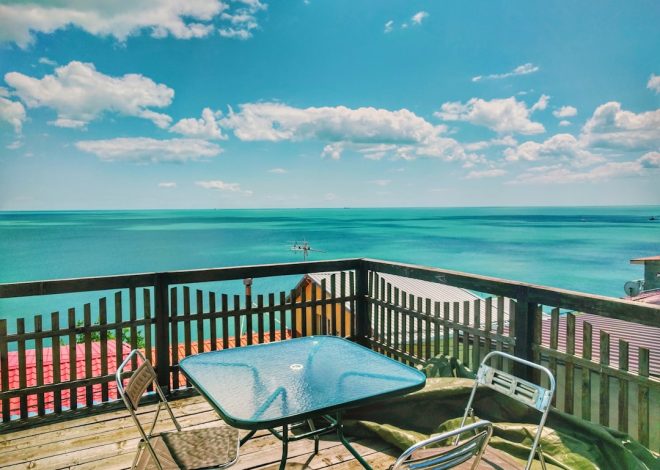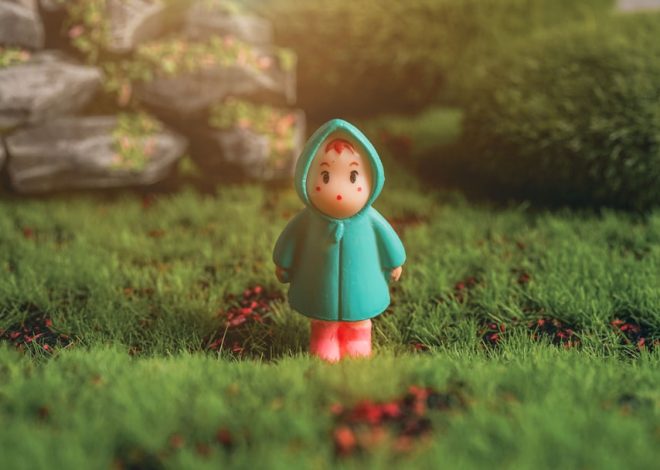
Cool Colo Campfire Lingo: How to Talk Like a Local
Colo Campfire Lingo is a unique and colorful language that is used by campers and outdoor enthusiasts around the world. It is a language that has developed over time as a way for campers to communicate with each other and share their experiences in the great outdoors. Colo Campfire Lingo is not just a set of words and phrases, but it is also a reflection of the culture and history of the places where it is spoken. Understanding Colo Campfire Lingo is essential for anyone who wants to fully immerse themselves in the camping experience and connect with fellow campers on a deeper level.
Colo Campfire Lingo is characterized by its simplicity and practicality. It is a language that is focused on conveying essential information and fostering a sense of community among campers. From basic phrases for setting up a tent to more complex expressions for navigating the wilderness, Colo Campfire Lingo covers a wide range of topics related to camping and outdoor activities. Learning Colo Campfire Lingo is not just about memorizing words and phrases, but it is also about embracing the spirit of camaraderie and adventure that is at the heart of the camping experience.
Key Takeaways
- Colo Campfire Lingo is a unique language used around campfires, and understanding the basics is essential for a meaningful experience.
- Essential phrases and words like “smores,” “campfire stories,” and “roasting marshmallows” are important to know for effective communication around the campfire.
- Slang and sayings like “happy camper,” “roughing it,” and “pitching a tent” add color and character to Colo Campfire Lingo.
- Regional variations in Colo Campfire Lingo can be found across different locations, reflecting local culture and history.
- Using Colo Campfire Lingo respectfully involves understanding and embracing the local language and customs, and following etiquette tips for communication around the campfire.
Essential Colo Campfire Phrases and Words to Know
1. “Pitching a tent” – This phrase refers to the act of setting up a tent at a campsite. It is an essential skill for any camper, and knowing how to pitch a tent properly can make or break a camping trip.
2. “Bear bag” – This term is used to describe a bag or container used to store food and other scented items in order to keep them safe from bears and other wildlife. Hanging a bear bag is an important safety measure when camping in bear country.
3. “Trailblazing” – This phrase refers to the act of marking or creating a new trail in the wilderness. Trailblazing requires careful navigation and an understanding of the local terrain.
4. “Campfire cooking” – This term describes the practice of preparing meals over an open fire at a campsite. Campfire cooking is a beloved tradition among campers and often involves using specialized equipment such as cast iron skillets and Dutch ovens.
5. “Leave no trace” – This expression emphasizes the importance of minimizing environmental impact while camping. It encourages campers to clean up after themselves and leave the natural environment as they found it.
Slang and Sayings: Colo Campfire Lingo in Action
Colo Campfire Lingo is not just about practical phrases and words, but it also includes a rich array of slang and sayings that are used to express the unique experiences of camping and outdoor living. These expressions often reflect the close connection between campers and nature, as well as the sense of adventure that comes with exploring the great outdoors.
1. “Happy camper” – This slang term is used to describe someone who is content and satisfied with their camping experience. It is often used to convey a sense of joy and fulfillment that comes from spending time in nature.
2. “Roughing it” – This saying refers to the act of camping in a basic and primitive manner, without the comforts of modern amenities. It is often used to describe a more rugged and adventurous style of camping.
3. “Nature’s symphony” – This expression is used to describe the sounds of nature, such as birdsong, rustling leaves, and flowing water. It reflects the idea that nature itself can create beautiful music for those who take the time to listen.
4. “Trail magic” – This term refers to unexpected acts of kindness or generosity that occur on the trail, such as finding a cache of supplies left by other hikers or receiving assistance from strangers. Trail magic can be a source of joy and inspiration for campers on long-distance hikes.
5. “Campfire stories” – This phrase describes the tradition of sharing tales and anecdotes around the campfire. Campfire stories are a beloved pastime for campers and often involve spooky tales, humorous anecdotes, and personal reflections on nature and adventure.
Regional Variations: How Colo Campfire Lingo Differs Across Locations
“`html
| Location | Unique Campfire Lingo | Common Phrases |
|---|---|---|
| Rocky Mountains | Rocky Mountain S’mores | “Let’s gather ’round the fire” |
| Appalachian Trail | Trail Mix Tales | “Pass the marshmallows, please” |
| Sierra Nevada | Sierra Sunset Stories | “Who’s got the hot dogs?” |
“`
One of the fascinating aspects of Colo Campfire Lingo is its regional variations, which reflect the diverse landscapes, cultures, and histories of different camping destinations. From the mountains to the coast, from the desert to the forest, each region has its own unique set of words, phrases, and sayings that are shaped by the local environment and traditions.
In mountainous regions, Colo Campfire Lingo often includes terms related to alpine activities such as mountaineering, rock climbing, and snow sports. Phrases like “summit fever” (the intense desire to reach the top of a mountain) and “whiteout” (a blizzard with reduced visibility) are commonly used in these areas. In coastal regions, campers may use nautical terms such as “anchoring down” (setting up camp near the shore) and “beachcombing” (searching for treasures along the coastline). Desert camping areas may have their own set of phrases related to survival skills, water conservation, and navigating arid landscapes.
Colo Campfire Lingo Etiquette: Tips for Using Local Language Respectfully
When using Colo Campfire Lingo in different regions, it is important to be mindful of local customs and etiquette. Just as with any language, using Colo Campfire Lingo respectfully means understanding its cultural context and adapting your communication style to fit the local environment.
One key aspect of Colo Campfire Lingo etiquette is being open to learning from local campers and respecting their knowledge of the area. If you are visiting a new camping destination, take the time to listen to local campers and learn about their unique lingo and traditions. By showing an interest in their language and culture, you can build connections with fellow campers and gain valuable insights into the local environment.
Another important aspect of Colo Campfire Lingo etiquette is being mindful of environmental sensitivities. In some regions, certain words or phrases may have specific meanings or connotations related to conservation efforts or cultural heritage. By being aware of these sensitivities, you can ensure that your use of Colo Campfire Lingo is respectful and considerate of local concerns.
Colo Campfire Lingo: A Window into Local Culture and History

Colo Campfire Lingo offers a fascinating window into the culture and history of different camping destinations. Through its words, phrases, and sayings, Colo Campfire Lingo reflects the unique experiences and traditions of local communities, as well as their deep connection to the natural world.
In many cases, Colo Campfire Lingo has its roots in indigenous languages and traditions, reflecting the enduring influence of native cultures on outdoor living. By learning about the origins of Colo Campfire Lingo in different regions, campers can gain a deeper appreciation for the rich heritage of these areas and develop a greater understanding of their significance.
Furthermore, Colo Campfire Lingo often incorporates historical references and stories that have been passed down through generations of campers. By exploring these linguistic connections to the past, campers can gain insights into the ways in which outdoor living has evolved over time and how it continues to shape contemporary camping experiences.
Embracing Colo Campfire Lingo: How to Incorporate Local Language into Your Campfire Experience
Embracing Colo Campfire Lingo is not just about learning words and phrases; it is about immersing yourself in the local culture and forging connections with fellow campers. There are many ways to incorporate local language into your campfire experience and deepen your appreciation for the places you visit.
One way to embrace Colo Campfire Lingo is by participating in local traditions and activities that are tied to the language. Whether it’s joining in on a traditional campfire song or learning how to cook a regional dish over an open fire, engaging with local customs can help you connect with the language in a meaningful way.
Another way to incorporate local language into your campfire experience is by seeking out opportunities to learn from experienced campers who are familiar with Colo Campfire Lingo in that region. By engaging in conversations with local campers, asking questions about their lingo, and sharing your own experiences, you can gain valuable insights into the unique aspects of camping in that area.
In conclusion, Colo Campfire Lingo is an integral part of the camping experience that reflects the diverse landscapes, cultures, and histories of different regions. By understanding essential phrases and words, embracing slang and sayings, respecting regional variations, observing etiquette, exploring local culture and history, and incorporating local language into your campfire experience, you can deepen your connection with nature and fellow campers while gaining a richer understanding of the places you visit.
If you’re interested in learning more about camping and outdoor activities, be sure to check out Lori West’s article on her website www.authorloriwest.com. Lori West is an experienced outdoor enthusiast and writer who shares her insights and tips for making the most of your camping experience. Her article may provide valuable information and inspiration for anyone interested in Colorado campfire slang and other outdoor adventures.
FAQs
What is Colorado Campfire Slang?
Colorado Campfire Slang refers to the unique and often humorous language and phrases used by campers and outdoor enthusiasts in Colorado while sitting around a campfire. It includes a mix of local jargon, outdoor terminology, and playful expressions.
What are some examples of Colorado Campfire Slang?
Examples of Colorado Campfire Slang include phrases like “bear bag” (a bag used to hang food out of reach of bears), “cowboy coffee” (strong, unfiltered coffee brewed over a campfire), and “s’moregasm” (a humorous term for the intense pleasure of eating a s’more).
Why is Colorado Campfire Slang important?
Colorado Campfire Slang is important because it helps create a sense of community and camaraderie among campers. It also reflects the unique outdoor culture and traditions of Colorado, adding to the overall camping experience.
How can I learn more about Colorado Campfire Slang?
To learn more about Colorado Campfire Slang, you can engage in conversations with experienced campers, join outdoor groups and forums, or participate in camping events and activities in Colorado. Additionally, there are books and online resources that document and explain various campfire slang terms.


